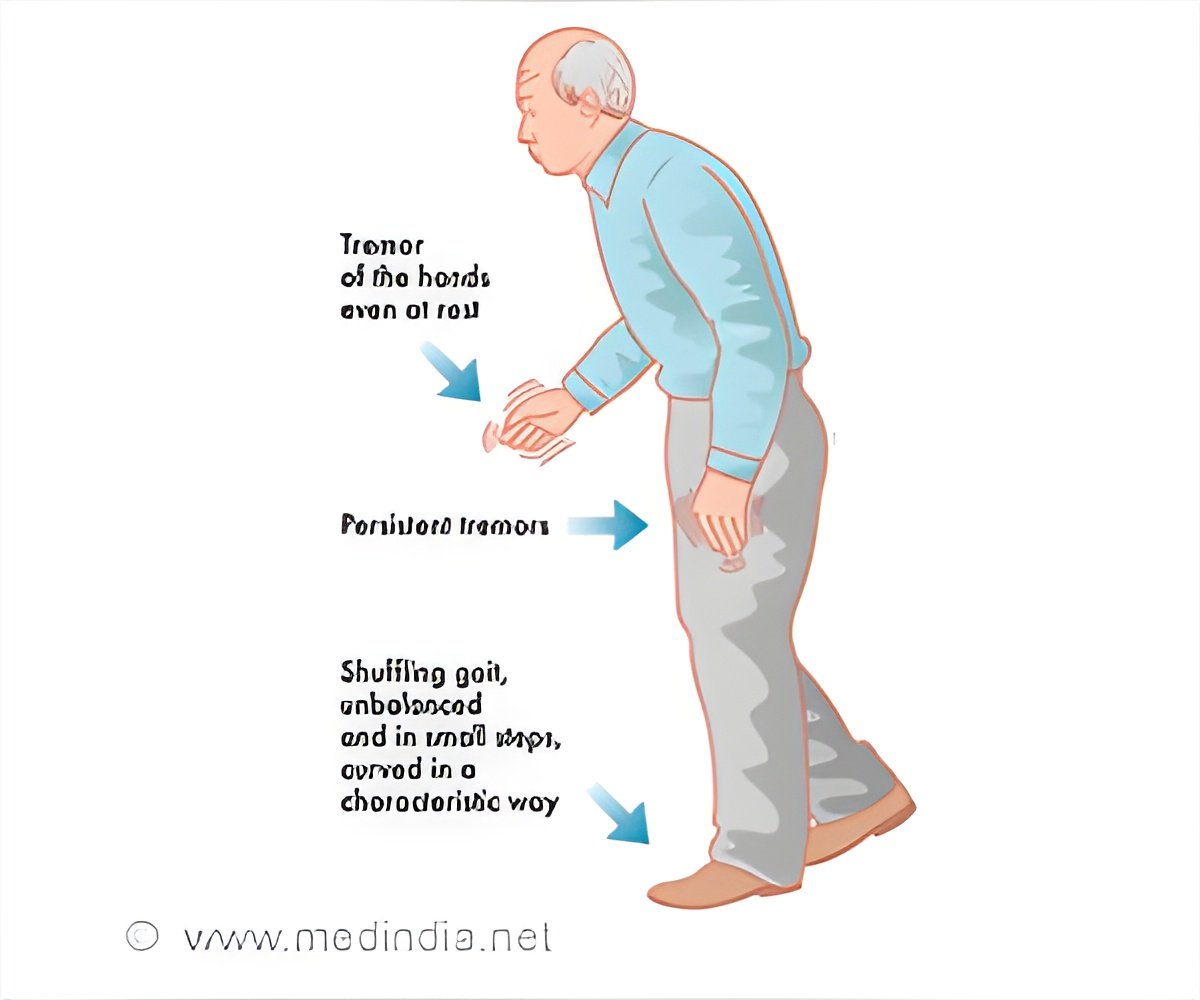Parkinson’s disease could affect movements. Seasonal flu infections may increase the risk of the disease, finds a new study.

The research study was reported in the journal npj Parkinson’s Disease.
"This study has provided more evidence to support the idea that environmental factors, including influenza may be involved in Parkinson's disease," says Richard J. Smeyne, Ph.D., Professor of Neuroscience in the Sidney Kimmel Medical College at Thomas Jefferson University and Director of the Jefferson Parkinson's Disease Center in the Vickie and Jack Farber Institute for Neuroscience.
"Here we demonstrate that even mice who fully recover from the H1N1 influenza virus responsible for the previous pandemic (also called 'swine flu') are later more susceptible to chemical toxins known to trigger Parkinson's in the lab."
Previously, Dr. Smeyne and his collaborator Dr. Stacey Schultz-Cherry in the Department of Infectious Disease at St. Jude Children's Research Hospital in Memphis, TN, showed that a deadly H5N1 strain of influenza (so-called Bird Flu) that has a high mortality rate (60 percent of those infected died from the disease) was able to infect nerve cells, travel to the brain, and cause inflammation that, the researchers showed, would later result in Parkinson's-like symptoms in mice. Inflammation in the brain that does not resolve appropriately, such as after traumatic injury to head, has also been linked to Parkinson's.
Building on that work, the current paper looked at a less lethal strain, the H1N1 "swine flu," that does not infect neurons, but which, the researchers showed, still caused inflammation in the brain via inflammatory chemicals or cytokines released by immune cells involved in fighting the infection.
Advertisement
Importantly, when mice were vaccinated against the H1N1, or were given antiviral medications such as Tamiflu at the time of flu infection, the increased sensitivity to MPTP was eliminated.
Advertisement
Source-Eurekalert










